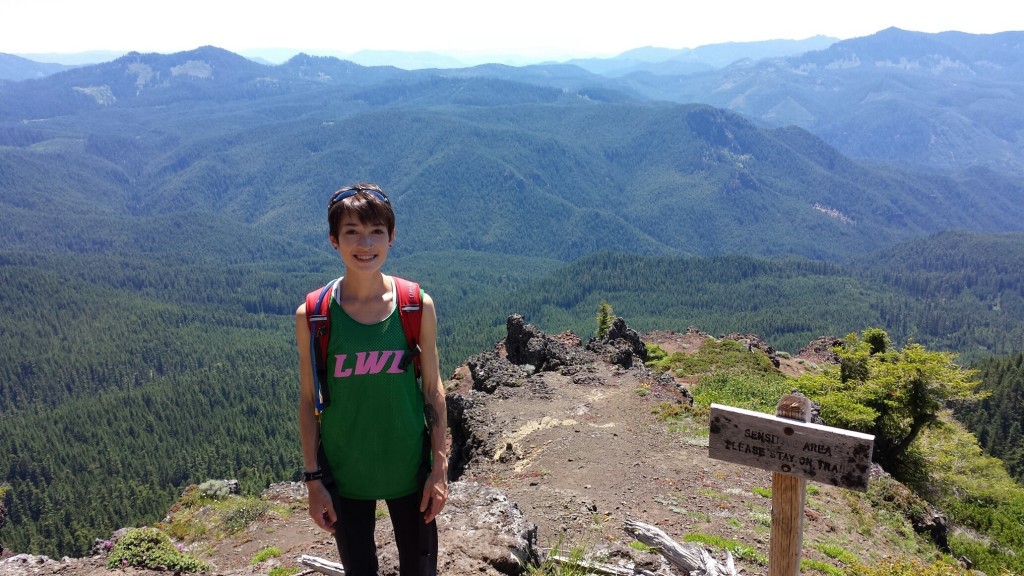
The next time I am asked whether I can be an advocate for people and places with the least information, access to, and ability to obtain a just, healthy, and resilient future, and have a career, I can confidently answer “yes!”
After my first day at Environmental Law Alliance Worldwide (ELAW) in Eugene, Oregon, I knew I found the type of dynamic, engaging, hard working, and innovative legal community I want to be part of for the long-term. As a dual J.D./M.E.M. candidate, I accelerated through law school and missed valuable opportunities to apply my learning to a “real-world” situation. Such omissions proved frustrating for my legal education because law is a skill-based discipline that requires application. Otherwise one is left with a bag of tools, raw material, and no directions.
Adrift in my sea of legal reasoning and academic conceptions about environmental justice and community empowerment, I sought mentorship from lawyers working in the interconnected fields of environmental and public interest law. I was fortunate to discover ELAW, which was founded in 1989 at the University of Oregon Law School by a group of lawyers from ten countries who discovered they could promote environmental protection for their communities more effectively by sharing strategies and legal and scientific information. This cross-border collaboration has since expanded to include more than 300 public interest advocates from seventy countries. ELAW remains a nonprofit law organization that “helps communities speak out for clean air, clean water, and a healthy planet” and promotes “grassroots efforts to build a sustainable, just future.”
I cannot disclose specifics, but my day-to-day assignments go something like this:
An advocate (lawyer) in ____ country is thinking about bringing a claim against ____ project or company on behalf of ____ community in defense of their human, environmental, and/or constitutional rights to a safe, healthy, and sustainable environment for present and future generations. Can you provide information about relevant laws, precedent cases, and advice about the viability of such a claim?
Then off I go onto the Internet and law library to research and write a memo in response, usually in collaboration with other ELAW law and science experts. I’ve researched international financing of gold, copper and silver operations that are impacting a local community, investigated whether noxious odors constitute a violation of the right to a healthy environment, and summarized, for comparison, U.S. laws and regulations pertaining to wetland development and phosphate mining. I also help update and expand an online database of countries’ environmental impact assessment (EIA) legislation. Exploring how different countries articulate and enforce environmental laws, especially with regard to EIAs, is fascinating, and says a lot about the nation’s governance and rule of law, political and colonial history, economic development, and other socio-economic and socio-cultural issues. Environmental changes exacerbate existing social, political, and economic stressors, so there is a strong emphasis on the intersection between human and environmental rights.
Though difficult, I am learning that the “answer” to a particular request is often negative or unclear. In addition, I may or may not find out whether a particular memo made a beneficial difference in a case or not. The important part of my work, however, is not always about winning or personal recognition, but about aid through empowerment. ELAW’s philosophy and purpose is to provide legal and scientific assistance at the request of communities, with the goal of strengthening the rule of law and access to justice at the local level. The personal relationships established with the lawyers who represent these communities helps elucidate the elements that comprise environmental justice: recognition, participation, enforcement, and empowerment.
Non-profit work is not always romantic and certainly has its challenges. A great deal of time must be spent fundraising and writing grant applications. ELAW’s physical office space and amenities are limited, but the location is beautiful, and my co-workers are personable, friendly, and generous. Largely dependent upon volunteers and unpaid interns, the ELAW community is more value- than profit-driven. Non-profit legal work, in sum, is simultaneously rewarding and humbling in the most satisfactory way. ELAW has already taught me that to be a more effective environmental and public interest lawyer, one must first identify as an environmental and community advocate.
I find it difficult to believe that a month has already passed since my move to the west coast. At the same time, if my knowledge and list of amazing experiences continue at their current rate, I am looking forward to my remaining six weeks with enthusiasm and determination to take advantage of every opportunity.
Peace and Love from Eugene,
Marissa Knodel